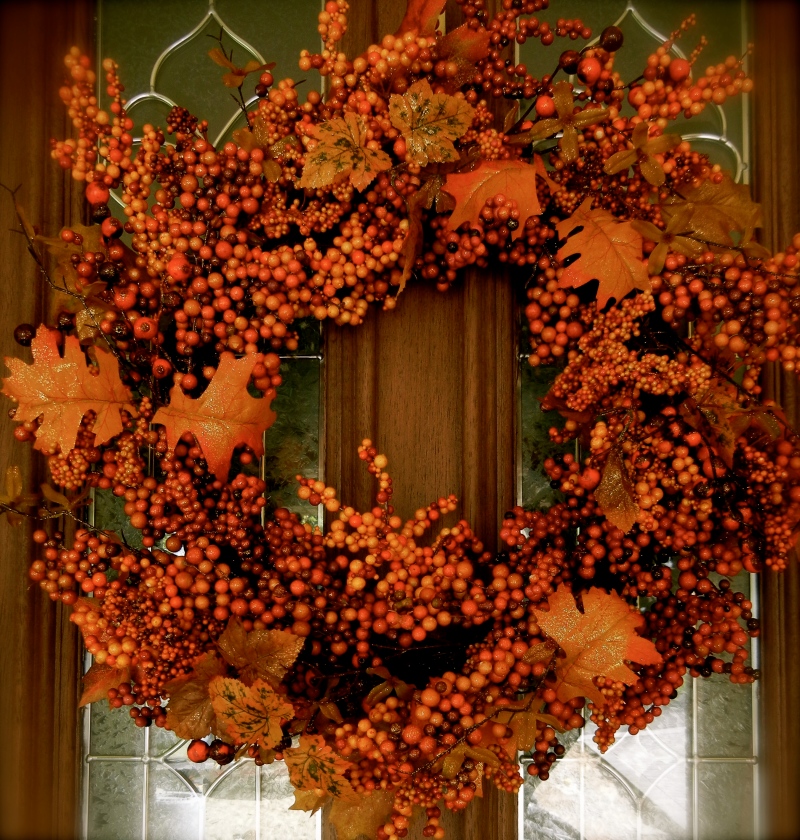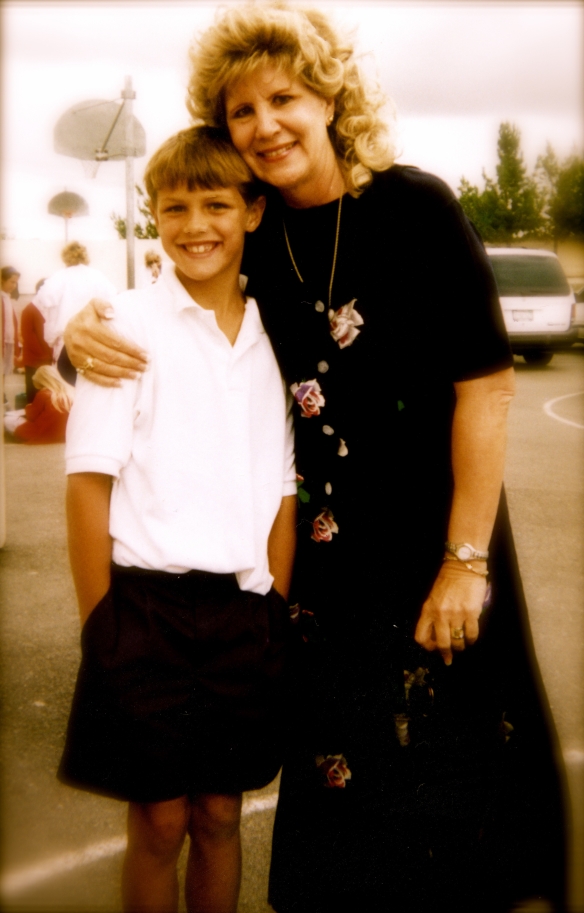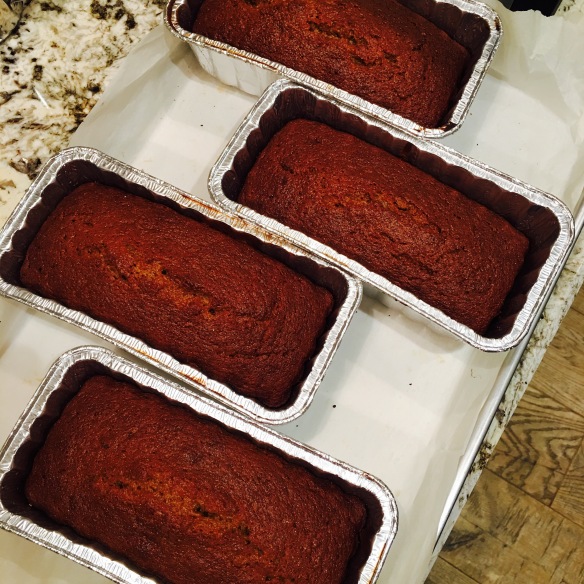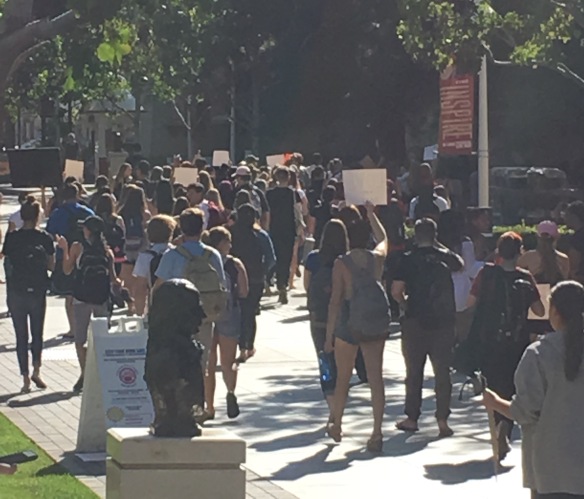
Did you ever walk away from something you truly loved and feel a bit disoriented? After nine and a half years I quit my university teaching gig.
It’s a little soon to say if I regret my decision, but I’ll admit to floundering this fall.
I didn’t leave my job because I didn’t like it. The privilege of standing before a roomful of bright, kind, young people looking at me like I had something valuable to teach them, never ever got old.
And I didn’t lose my job. In fact, my evaluations were always strong and my contract was freely renewed each semester. I have an open invitation to return.
What I tired of was continuing to play a part in the nationwide trend in higher education to shift the role of teaching to part-time faculty who, at least at my university, receive no benefits and no more job security than a 15-week contract. One current study found that from 2003 to 2013, the use of adjunct labor increased from 52% to 60% at private universities and from 45 to 62% at public bachelor’s degree-granting institutions.
At the same time, student loan debt has risen to over 1.5 trillion dollars collectively according to a June, 2018 article in Forbes: Student Loan Debt Statistics in 2018: a $1.5 Trillion Crisis. “At private nonprofit colleges, average debt in 2012 was $32,300 (15% higher than in 2008, when the average was $28,200).” Where does the money go?
It turns out, according to a recent study, savings which come from using adjunct labor are usually funneled into more student services and administrative expenses. Somehow I felt complicit in a cycle that feels usury.
To put an exact number to this trend, my last contract guaranteed me $4,830.00 for teaching one semester’s class. The university limits the number of courses any adjunct can teach: Two. So, I taught two courses for a total semester paycheck of $9,660.00, or $19,320 annually.
I stood in an elite private university classroom before 36 students for six hours a week, prepped and graded 36 students’ writings, and made myself available for office hours adding another 18 – 20 hours of work a week. Add a week of syllabus writing time. Add another week of finals grading. I was making roughly $28 an hour which is significantly more than minimum wage.
Each of the 36 students would pay the university about $5,000 for my class. Yes, you can do the math. The university earned about $180,000 on my labor each semester. No savings are passed to students.
Can I reiterate how much I loved my job?
I did have the opportunity to voice my concerns directly to the university president over a lovely mushroom soup and salmon lunch. He shrugged and said, in effect, it’s the same everywhere and until there are no more adjuncts to take the work – and in the humanities especially there’s an over-saturation – the situation won’t change. And besides he said, students care more about adding a lazy river to the pool than who teaches them.
So I walked away to decrease the adjunct pool by one whopping body.
I’m faced with tremendous amounts of free time. I feel a little fractured, to be honest.

Finish poetry book: Check.
Send book to publishers: Check times ten.
I’ve targeted 25 publishers for my recently completed manuscript, each with its own open submission timeframe. I’m on the tenth publisher. Four have rejected the book. Six are still pending responses. Fifteen have approaching deadlines.
In the meantime, every writer will say the best thing to do after you finish one big thing is to start a new project.
Since it’s fall, which has meant school begins for as long as I can remember, I’ve decided to take a class. One of my own: Composing Self. It’s a writing class I’ve taught many times, exploring how and why writers compose a specific identity through careful language selection. If I’m any good at this teaching thing, I should learn quite a bit.
Composing Self is a creative nonfiction course. I’ll write about myself, or write about another real human, within the context of the world, much like this blog post which blends the personal with facts and figures for larger context.
We exist in the real world. We have permission to speak.
Do you want to take this course with me?
If you’re intrigued with the prospect of having someone curate a reading list for you, and create regular writing prompts, check out the details on my new website: Catherine Keefe.
What’s the cost?
What do you think I’m worth? Pay me what seems fair when the class is over.
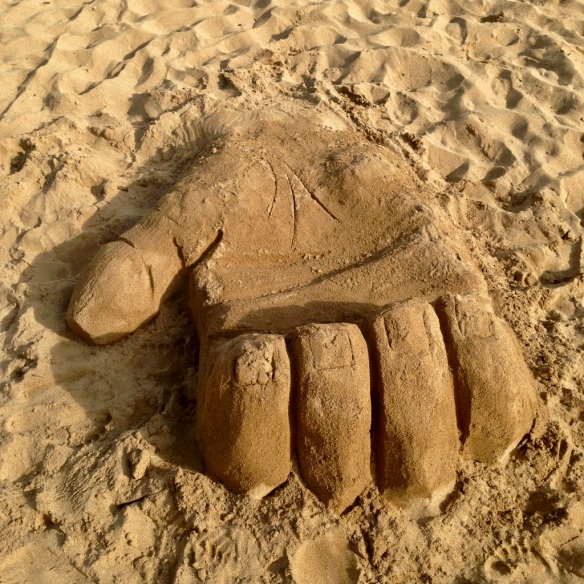
ps: This passage written by James Martin, SJ in The Jesuit Guide to (Almost) Everyone: A Spirituality for Real Life inspired me to include real salary numbers in my post, a move I’m certain I would have shied away from before reading the observation.
Individuals show their status through certain social symbols – job titles, possessions, credentials, and so on. One’s personal worth depends on one’s wealth or job.
That’s why discussing salary is perhaps the biggest taboo in social settings: it’s the quickest way of ranking people and is society’s prime measure of our worth. Finding out someone else’s salary instantly makes you see the person in a certain light…
James Martin, SJ, in summary and comment upon Dean Brackley, S.J.’s concept of “Downward Mobility.”
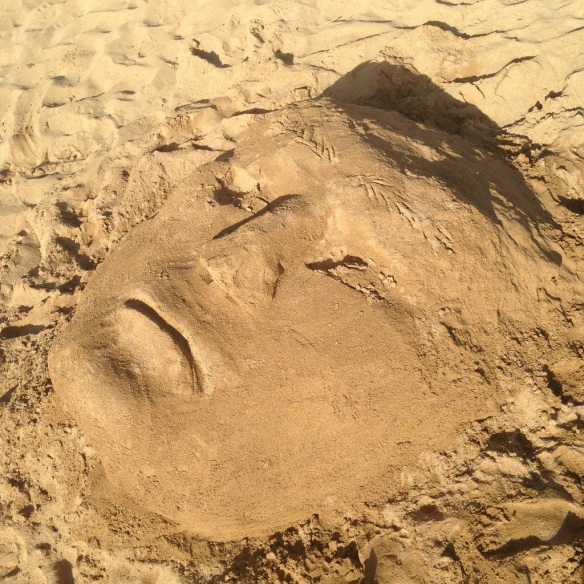
This is the same face as the image at the top of the post. Different angle. Different light.
Kalapaki Beach Sand Sculpture 1, 2, and 3
Photos by Catherine Keefe

